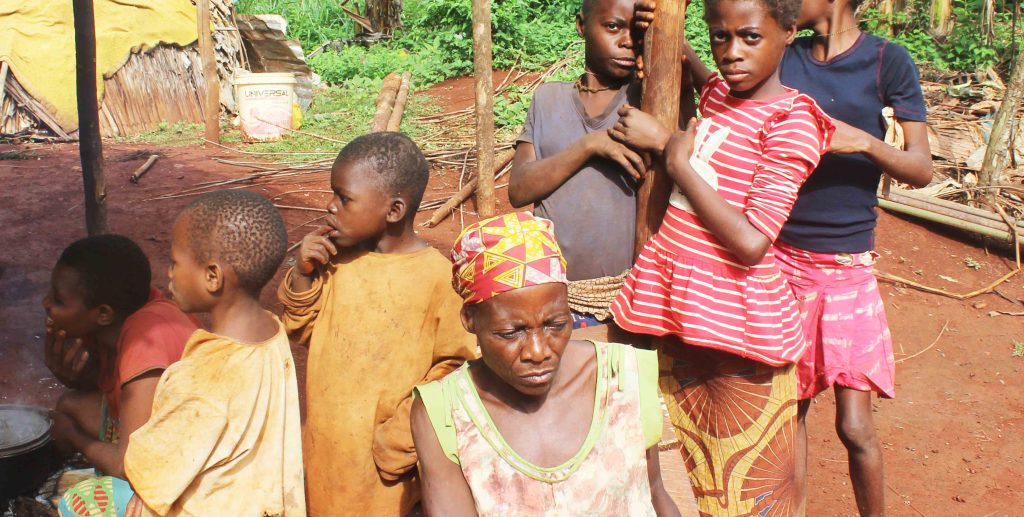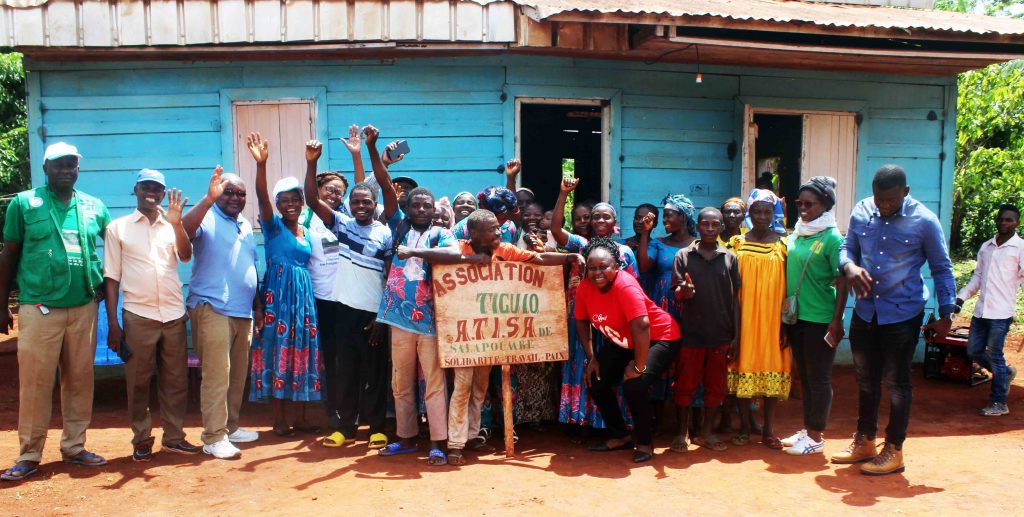By Shuimo Trust
The Environment and Rural Development Foundation (ERuDeF) developed a project aimed at giving indigenous peoples and local communities a leading role in conservation in Southeast Cameroon. The project titled “Southeast Cameroon Indigenous Peoples and Local Communities (IPLCs) Conservation Project” seeks to provide a holistic integration of IPLCs into the long-term sustainable management of the Lobeke National Park (LND) in Southeast Cameroon.
The Lobeke National Park is one of the richest biodiversity hotspots in Cameroon reason it was declared a UNESCO World Heritage site in 2012. This park has some of the highest densities of African forest elephants and western lowland gorillas in all of Africa and forms part of the Congo rainforest that faces threats from different angles.
Efforts towards conserving this biodiversity hotspot by different conservation organizations and the government of Cameroon have unfortunately sidelined Indigenous Peoples and Local Communities. External pressure to include these people have not yielded much, but rather lip service inclusion of the IPLCs into the park’s management. Coupled with this, the IPLCs had been marginalized and pushed to enclaved landscapes with very little and/or no external support in the areas of education, livelihood and economic development, and access rights to resources they have been depending on. The non-definition of their access rights, incentives mechanisms, and decision-making in the overall landscape management plans has further alienated the IPLCs from their resources and perceived conservation as an obstacle to their development.
Mekanda Rosette, a Baka pygmy lives in Mambele village, one of the villages beside the Lobeke National Park. She says the Bakas have been discriminated against in the management of the Lobeke National Park. “We have little or no say in the management of the Lobeke National Park. Animals destroy our homes and farms almost on daily bases” Rossette said. She also frowns at the fact that they don’t have social amenities like schools, hospitals and potable water facilities. “Our children trek for at least 6 km to get to the nearest schools in this village, we drink water from doubtful sources,” she remarked.

Barbe Dieudonne is of the Bantu ethnic group. He says sideling IPLCs in the management of the Lobeke National Park is not only detrimental to the long-term conservation of the park but will gradually push them to encroach in the park. “We are supposed to have a big say in the management of this park. Our villages too have to have that feel of the presence of a park. We need developmental projects. If you visit most of the villages around this park, you will notice that they don’t have social amenities such as schools, health centres and portable water facilities”

To address the multitude of problems faced by IPLCs and integrate them into the management of the Lobeke National Park, the project has set out the following objectives.
· To train and build the capacity of 230 members of 23 IPLCs committees in 23 villages around the Lobeke National Park in the use of advanced technology in forest surveillance and biomonitoring.
· To promote good forest governance and the access/usage rights of the IPLCs around the Lobeke National Park by creating the Lobeke National Park Network of IPLCs platform to support advocacy issues affecting the lives of the IPLCs.
· To increase the food security, and economic and financial resilience of 30 IPLCs groups in 23 villages through livelihood support and income-generating activities (production, transformation and marketing groups, community-based projects and ecotourism development).
· To increase communication and advocacy through publication in various media platforms on the plight of the IPLCs.
· To increase education of the IPLCs through the development of a tailor-made programme and scholarship scheme for the IPLCs
Through capacity building, strengthening of cooperatives and common initiative groups, provision of sustainable livelihood options, advocacy for IPLCs and the creation of the Indigenous Peoples Education Fund, the above-listed objectives would be achieved and IPLCs will be fully integrated into the management of the Lobeke National Park.



